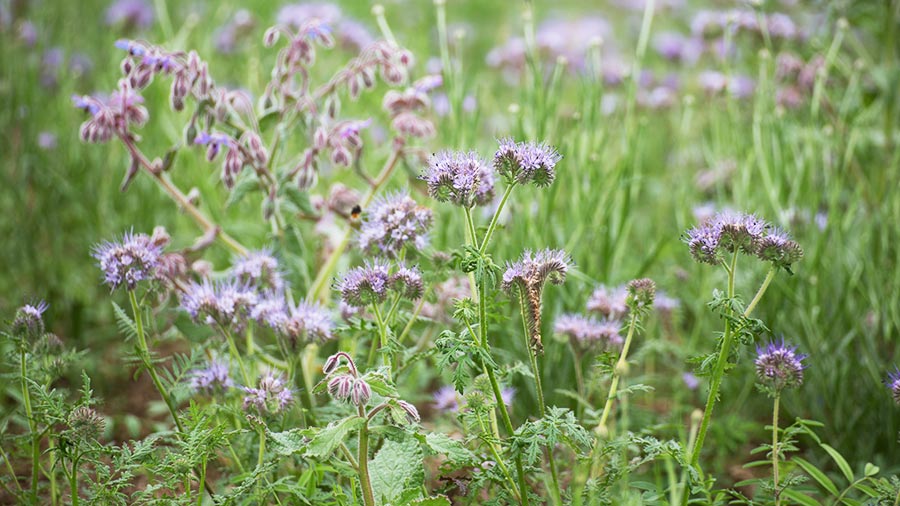Microbiology experts voice concern over omissions in SFI
 © Tim Scrivener
© Tim Scrivener Experts from the UK’s oldest microbiology society, Applied Microbiology International (AMI), have voiced concern over the new Sustainable Farming Initiative (SFI), saying it lacks “microbiological considerations”.
The organisation has particular concerns about potential negative effects on crop rotations as a result of overwinter multispecies cover crops, winter bird food mixes and hedgerow management.
Dr Lucky Cullen, policy and public affairs manager at AMI, said that without wider soil considerations, the potential benefits of schemes could be greatly reduced and lead to unintended consequences, as microorganisms are ubiquitous to productive agriculture.
See also: SFI 2023: Tips on making it work on your arable farm
Unintended consequences
One of the organisation’s concerns is the impact of multispecies cover crops on subsequent crop rotations.
“For example, brassica species can harbour pathogens that are harmful to subsequent brassica crops, such as oilseed rape,” Dr Cullen said.
“Brassicas are also not hosts for arbuscular mycorrhizal fungi, which are beneficial to plant health – yet the SFI as it stands does not consider these impacts.”
However, many farmers are aware of the impacts of the “wrong” species in cover crop mixes and therefore tweak species selection according to cropping plans.
Many are already growing cover crop mixes on farm, and so have welcomed the funding opportunities offered by the SFI.
Horticultural land
A further issue raised by the AMI is the impact of winter bird food on arable and horticultural land.
“More nuance is needed on the subsequent crop type that can be planted to winter bird food, since some evidence suggests there could be a risk of pathogen transmission from wintering birds to humans,” Dr Cullen said.
As such, the group suggests that crops such as ready-to-eat vegetables should not be planted in the subsequent rotation to winter bird food, as they are a higher transmission risk than crops which are cooked prior to consumption.
“Another action on managing hedgerows makes no mention of how to manage cut hedgerow material,” AMI said.
“Evidence shows that some weed species that may develop in hedgerows can harbour crop pathogens – therefore we suggested that farmers should be made aware of this risk and a management system for cut material should be included in the SFI, to prevent the risk of pathogen transmission from weeds to crops.”
AMI emphasised the need to start formulating policy decisions and initiatives with better transdisciplinary input, suggesting this would reduce the risk of policies having unintended adverse effects and require revision.
The organisation said its experts had more thoughts on soil health and how this could be better utilised to understand the soil microbiome as part of the SFI.
This will be explored further in a report to be published later this year.

